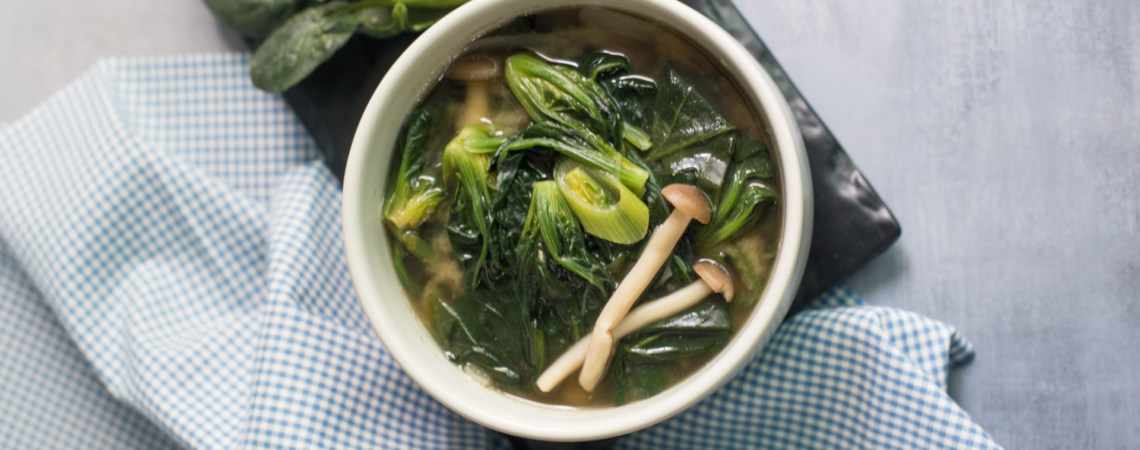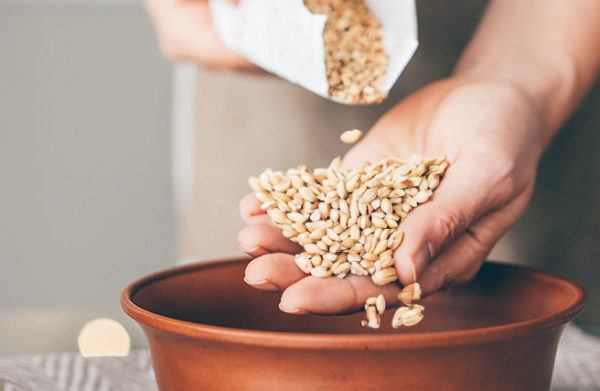
SHA Magazine Healthy Nutrition
10 alkaline foods and their health benefits
Adding millet, broccoli or tofu in your regular diet will help you to reduce your body’s level of acidity and minimise inflammatory processes
The alkaline diet is based on foods that have a direct impact on the body’s pH. Alkaline foods, that is, those with a pH above 7, help to reduce acidity, while more acidic foods (pH below 7) help to increase it, creating an environment that is more conducive to the development of different diseases. Therefore, SHA nutrition is not only balanced, natural and sustainable, but also alkalising.
Joana André, Melanie Waxman and María Romeralo, Healthy Nutrition consultants at SHA Wellness Clinic, recommend 10 alkaline foods that you can include in your regular diet and that are packed with beneficial properties for your health.
- Miso
Its name in Japanese means “source of flavour” and it is obtained from the slow fermentation of soya beans, in a process that can take up to three years. It is a source of natural probiotics; it is alkalising, revitalising and purifying and helps strengthen the immune system; it provides energy, improves digestion, reduces blood cholesterol levels and accelerates the elimination of heavy metals.
- Seaweed
Seaweed is alkalising and contains polyphenols, polysaccharide complexes, fatty acids and carotenoids. It promotes the detoxification of heavy metals, has a positive impact on the gut microbiota and helps minimise inflammation in the body, thereby reducing the risks associated with obesity, diabetes mellitus, inflammatory bowel disease, cardiovascular problems and some cancers. Regularly incorporate them into your diet by adding small amounts to soups and salads, mix them with other vegetables, cereals or pulses, and even add them to desserts (agar-agar).
- Broccoli
Kale, cauliflower, Brussels sprouts, pak choi cabbage and broccoli are cruciferous vegetables, low in calories and with a high nutritional density. They are rich in antioxidants, which are important when it comes to reducing free radical production and oxidative stress, and have the potential to prevent DNA damage, activate the body’s defences against pathogens and stimulate liver detoxification.
- Millet
It is the most alkaline cereal and is also gluten-free. It is a complex carbohydrate, rich in minerals such as iron, magnesium and zinc, and B vitamins. Extremely beneficial for the nervous system, it is very useful in combating digestive weakness as well as diabetes because of its low glycaemia. It is a very versatile food that can be used as porridge for breakfast, in soups, hamburgers, cakes, etc.
- Tofu
Made from soya milk, tofu is an alkalising, high-protein, easy-to-digest food. It is rich in calcium, low in calories and gluten-free. You can add it to soups, sauces, pâtés, hamburgers or cook it with vegetables and pulses.
- Berries
Blackberries, blueberries, raspberries and strawberries contain polyphenols, prebiotics, fibre, vitamin C, folate, magnesium and potassium. They prevent cellular DNA damage, reduce inflammation, reduce oxidative stress, improve the quality of gut microbiota and digestive health, strengthen the immune system and help prevent multiple diseases, including cancer.
- Umeboshi
This is a variety of Japanese sour plum that is fermented in salt in a process that can take up to three years. It is highly alkaline, acts as a natural probiotic and has antioxidant properties. It stimulates appetite, promotes digestion, improves circulation and acid reflux, prevents fatigue, relieves headaches and boosts the immune system.
- Gomashio
This condiment, prepared with sesame seeds and whole sea salt, provides the body with calcium, magnesium and vitamins, is alkalising and has an antioxidant effect. It improves digestion and cholesterol levels, reduces fatigue and strengthens teeth and gums. It can be added to creams, salads or cereals, but its salt content means it should be used in moderation.
- Kuzu
A white starch obtained from the root of the wild kuzu plant. In cooking, it is used as a gelling and thickening agent for soups, sauces, desserts and medicinal drinks and, although it has little taste, it is full of healthy properties. It regulates digestion, calms the nerves, helps stabilise blood sugar levels, reduces acidity, increases vitality and helps fight bacterial infections and headaches.
- Ginger
Ginger is a spicy root that is used as a condiment, garnish and to make medicinal teas. It is a source of vitamins, minerals and linoleic acid and works as an anti-inflammatory. It boosts immunity, improves both brain function and digestion, reduces gas, relieves headaches, nausea and PMS symptoms and helps with weight loss.
Click here to find out more about the alkaline diet.





